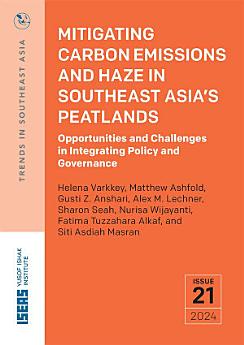Mitigating Carbon Emissions and Haze in Southeast Asia’s Peatlands: Opportunities and Challenges in Integrating Policy and Governance
About this ebook
While the problems of haze and climate change are connected through peatlands, these issues have been treated largely separately in policy and governance. In this article we provide an overview of Southeast Asian peatlands, assessing opportunities and challenges for greater integration of policy and governance in addressing haze, climate change and other sustainability dimensions. We focus on Indonesia and Malaysia, the Southeast Asian countries with the largest peatland areas.
We summarize key developments, along with evidence indicating that peatlands represent a large proportion of national GHG emissions in both Indonesia and Malaysia. Further, we trace the evolution of peatland policies at the national and regional levels, from focusing on conservation to addressing fire and haze issues, reflecting their complex relationship with national development and the corporate sector.
Next, we highlight important and yet unrealized opportunities to better integrate carbon emissions reduction alongside fire and haze in the implementation of peatland Nature-based Solutions (NbS), which are interventions to protect, sustainably manage, or restore nature. Emerging financial and market instruments provide one such opportunity. Additionally, the creation of an enabling governance environment through peatland community participation presents an opportunity to improve the effectiveness of NbS across multiple sustainability dimensions.
We found that for these two key countries, the most recent government-reported peatland emissions appear somewhat lower than is suggested by academic studies for Indonesia and substantially lower in the case of Malaysia. Further, we emphasize the complex challenge of integrating policies across multiple scales and issues, with international, regional and national actors, and in multiple industries, all active in peatland governance.
About the author
Helena Varkkey is an Associate Professor at the Department of International and Strategic Studies, Universiti Malaya.
Matthew Ashfold is an Associate Professor at the School of Environmental and Geographical Sciences, University of Nottingham Malaysia.
Gusti Z. Anshari is a Professor at the Soil Science Department, Universitas Tanjungpura, Indonesia
Alex M. Lechner is a landscape ecologist and Professor at Monash University Indonesia.





